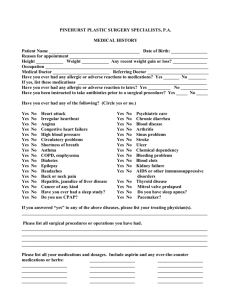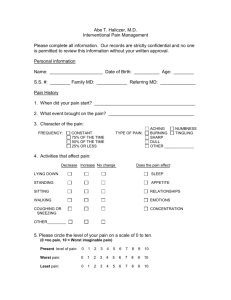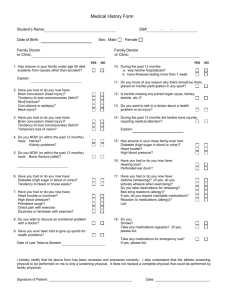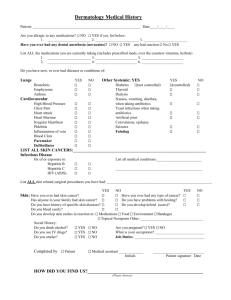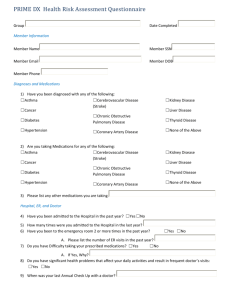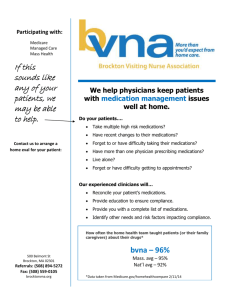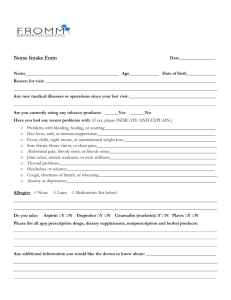Conscious Sedation
advertisement
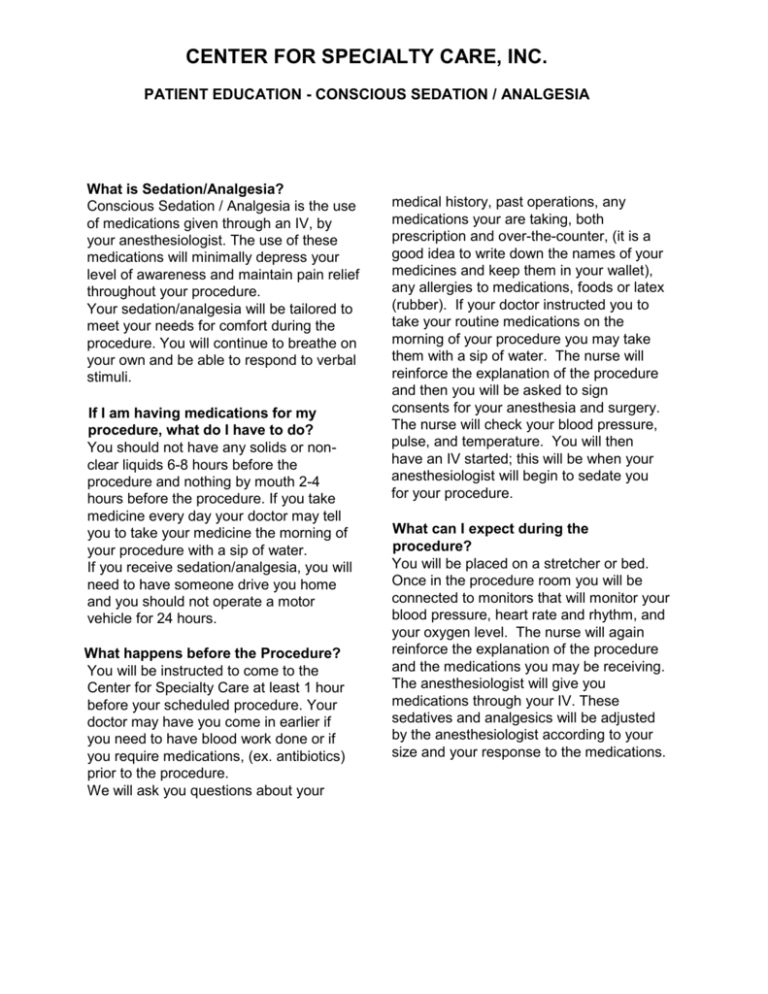
CENTER FOR SPECIALTY CARE, INC. PATIENT EDUCATION - CONSCIOUS SEDATION / ANALGESIA What is Sedation/Analgesia? Conscious Sedation / Analgesia is the use of medications given through an IV, by your anesthesiologist. The use of these medications will minimally depress your level of awareness and maintain pain relief throughout your procedure. Your sedation/analgesia will be tailored to meet your needs for comfort during the procedure. You will continue to breathe on your own and be able to respond to verbal stimuli. If I am having medications for my procedure, what do I have to do? You should not have any solids or nonclear liquids 6-8 hours before the procedure and nothing by mouth 2-4 hours before the procedure. If you take medicine every day your doctor may tell you to take your medicine the morning of your procedure with a sip of water. If you receive sedation/analgesia, you will need to have someone drive you home and you should not operate a motor vehicle for 24 hours. What happens before the Procedure? You will be instructed to come to the Center for Specialty Care at least 1 hour before your scheduled procedure. Your doctor may have you come in earlier if you need to have blood work done or if you require medications, (ex. antibiotics) prior to the procedure. We will ask you questions about your medical history, past operations, any medications your are taking, both prescription and over-the-counter, (it is a good idea to write down the names of your medicines and keep them in your wallet), any allergies to medications, foods or latex (rubber). If your doctor instructed you to take your routine medications on the morning of your procedure you may take them with a sip of water. The nurse will reinforce the explanation of the procedure and then you will be asked to sign consents for your anesthesia and surgery. The nurse will check your blood pressure, pulse, and temperature. You will then have an IV started; this will be when your anesthesiologist will begin to sedate you for your procedure. What can I expect during the procedure? You will be placed on a stretcher or bed. Once in the procedure room you will be connected to monitors that will monitor your blood pressure, heart rate and rhythm, and your oxygen level. The nurse will again reinforce the explanation of the procedure and the medications you may be receiving. The anesthesiologist will give you medications through your IV. These sedatives and analgesics will be adjusted by the anesthesiologist according to your size and your response to the medications. What should I expect after the procedure? Shortly after the procedure is finished you will be brought back to the room where you were before, prior to the procedure. Here you will be placed back on the monitors and observed for a minimum of 30 minutes. Once you are awake, you will be able to have something to eat and drink, providing the doctor has not instructed differently. A family member will be able to be with you. Prior to your discharge the nurse will go over your discharge instructions with you and you will be given a copy to take with you. Your IV will then be removed, you will dress and you will be brought down to the lobby in a wheelchair where your family member or friend will be waiting to drive you home. REMEMBER YOU CANNOT OPERATE A MOTOR VEHICLE FOR 24 HOURS AFTER RECEIVING SEDATION / ANALGESIA!

